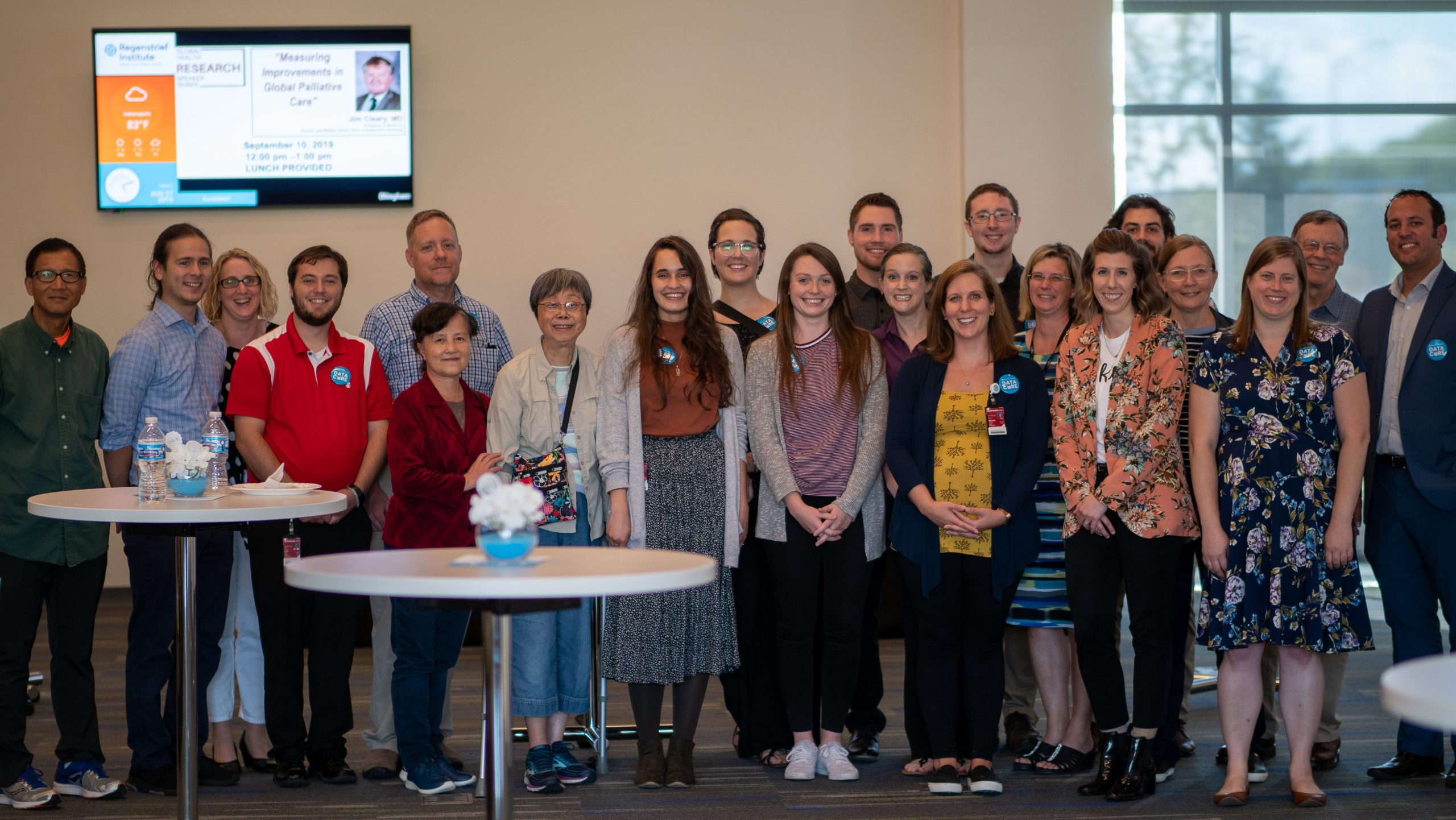Regenstrief Institute Data Core is celebrating its 20th anniversary. The group of talented data analysts serves as a central data access point for the Indiana Network for Patient Care (INPC) and other specialized sources and helps turn that information into datasets for research.
Formally established in 1999 by former Regenstrief President and Chief Executive Officer William Tierney, M.D., the intent of Data Core is to provide efficient facilitation of research questions from inception to clinical practice. The group started before the concept of a supporting data core was common.
Regenstrief data analysts have access to a vast trove of data. They are the only people allowed direct access to the identifiable patient data within the INPC research database. The INPC is one of the largest health information repositories in the country, with more than 100 separate healthcare entities providing data on nearly 15 million patients. In addition, Regenstrief data analysts can also access Eskenazi Health and Indiana University Health data warehouses, which provide an even greater variety of clinical data.
“One of the primary advantages of the Data Core team offers is customization,” said Faye Smith, manager of Data Core Services. “The team can tailor queries to the specifics of each project and can look at trends within the data to determine if the research hypothesis is correct or if the results are a symptom of a data flow problem.”
Smith has been with Data Core since the beginning and played an instrumental role in its growth.
“It’s been gratifying to witness and be part of Data Core as it was conceptualized, brought to formal fruition and grown over the last two decades,” said Smith. “The team shows its expertise time and time again to provide value to various research projects.”
The work of the Data Core has directly contributed to thousands of studies. A couple of notable research projects include the GRACE and PREVENT studies. Both of the trials dealt with collaborative care models and would not have been possible without being able to identify people who could be recruited, a key contribution with INPC data and the Data Core team. The team also created datasets for both the Indiana University Precision Health Initiative and the Addictions Crisis Grand Challenge.
“We are in the information age. Data is everything,” said Dr. Tierney, who is now the chair of the Department of Population Health at Dell Medical School, University of Texas at Austin. “I look forward to the next 20 years of Data Core.”
The Data Core works closely with the Indiana Clinical and Translations Sciences Institute, Indiana University School of Medicine and others.
Learn more about services offered by Data Core.
Regenstrief Institute itself is celebrating its 50th anniversary. Regenstrief Institute was founded in 1969 by philanthropist and businessman Sam Regenstrief and his wife Myrtie with the goal of improving the quality of healthcare for everyone. Learn more about the history of Regenstrief.









